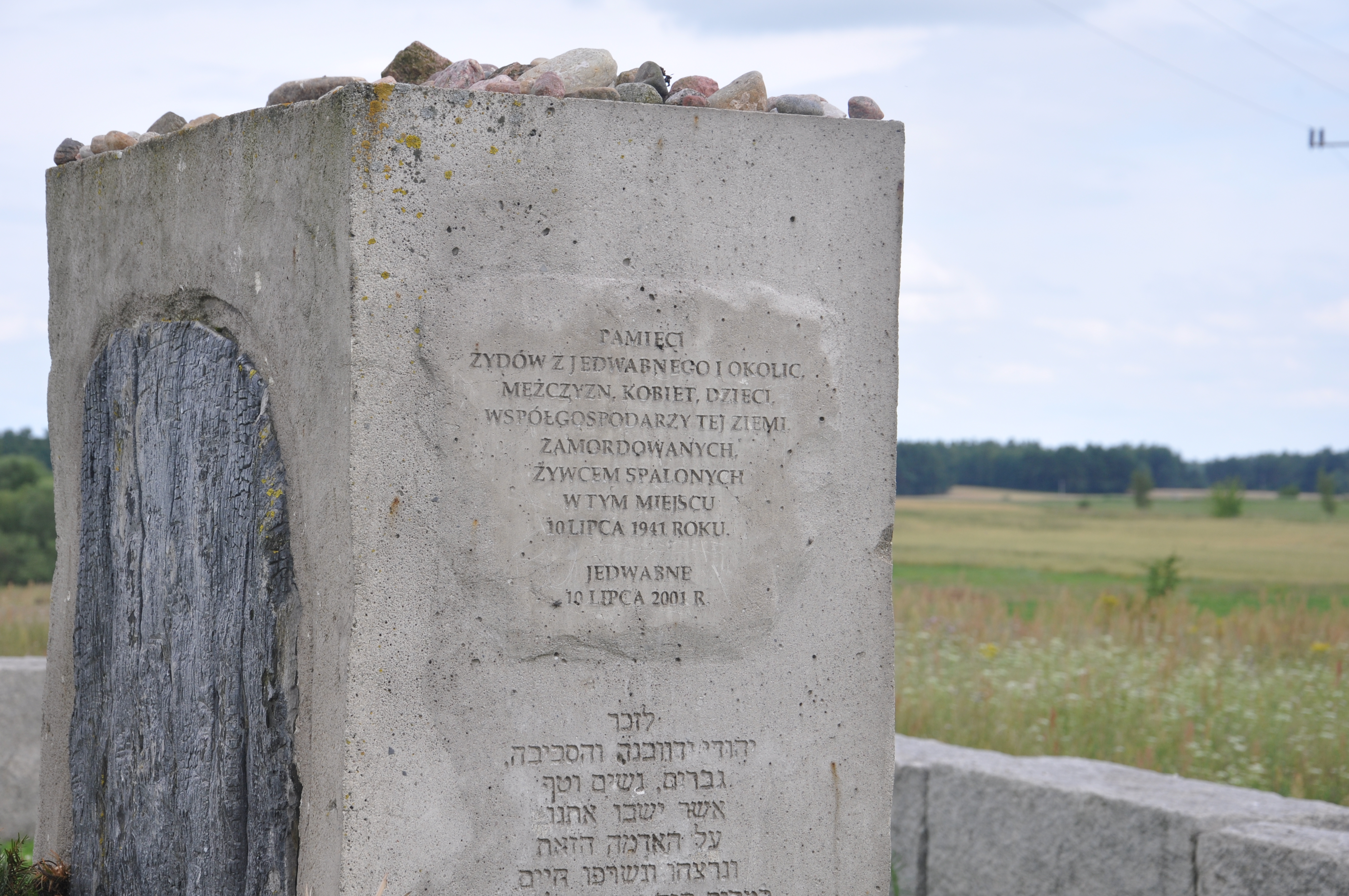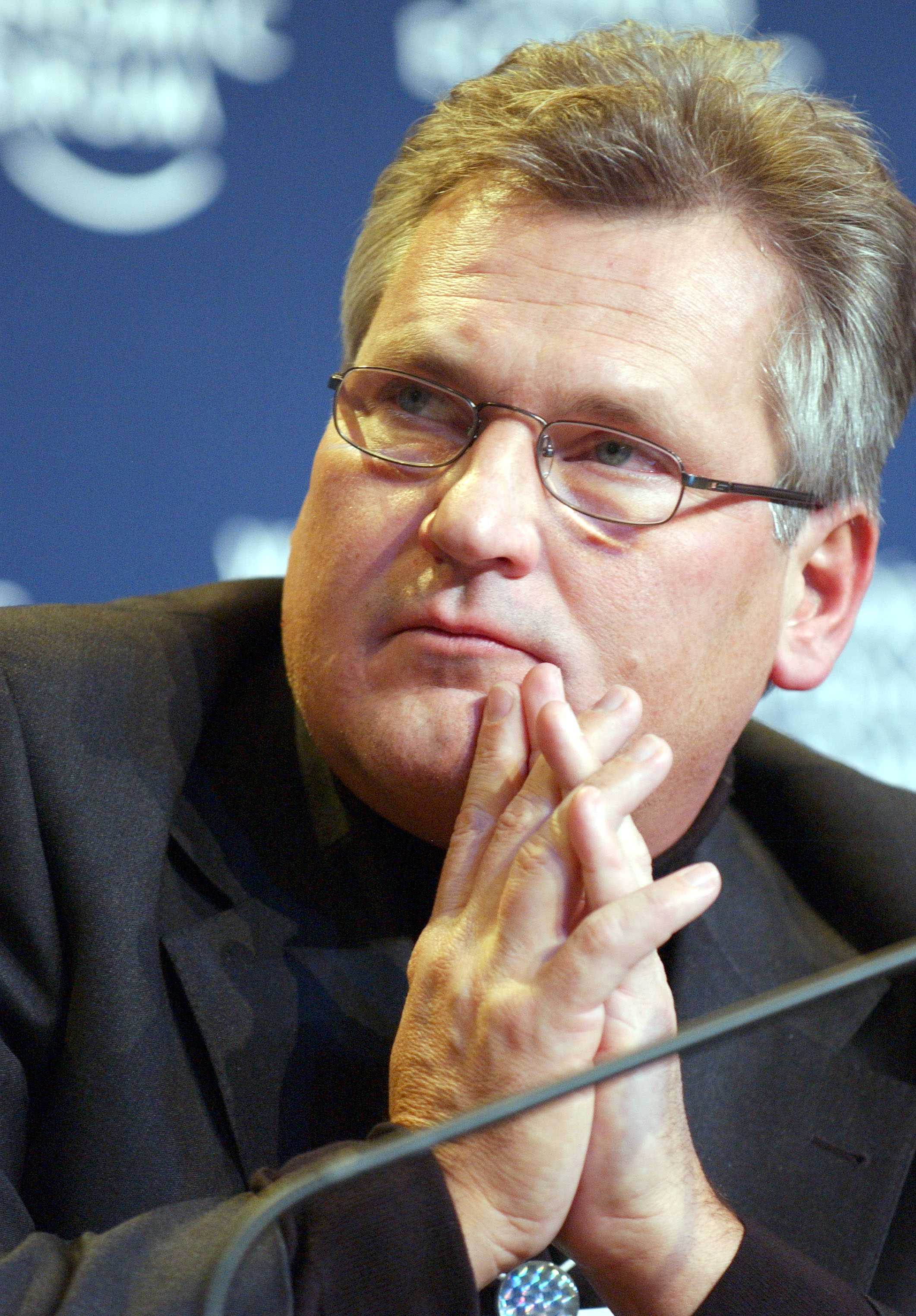Jedwabne Massacre, Jedwabne, Poland, 1941
Enlarge text Shrink text- Work cat: Gross, Jan T. Neighbors, 2001 :t.p. (the destruction of the Jewish community in Jedwabne, Poland)
- Chodakiewicz, Marek Jan. The massacre in Jedwabne July 10, 1941, 2005.
- United States Holocaust Memorial Museum, viewed April 26, 2018Holocaust encyclopedia, Pogroms (On July 10, 1941, Polish residents of Jedwabne, a small town located in Bialystok District of first Soviet-occupied and then German-occupied Poland, participated in the murder of hundreds of their Jewish neighbors)
- Polish neighbors slaughter the Jews of Jedwabne, article dated July 10, 2013 in Haaretz online, viewed June 7, 2018:(July 10, 1941: the date of the massacre carried out against the Jewish population of Jedwabne, Poland, by their Polish neighbors; less than three weeks after the arrival of the Germans, on July 10, the mayor of Jedwabne and the German gendarmerie gave the orders for the roundup of the town's Jews; investigation carried out in 2000-2002 by the Polish Institute of National Memory (IPN, in its Polish acronym) concluded that "at least 340" people were murdered, whereas the 1949 trial for treason of local perpetrators spoke of a figure of 1,500)
- 75 years after Jedwabne Massacre, Polish right wing still blames Germans, article dated July 21, 2016 in Haaretz online, viewed Jun 7, 2018.
- Yad Vashem WWW site searched through Google site search, June 7, 2018:("Jedwabne massacre": 32 hits; "Jedwabne pogrom": 0 hits as phrase)
- United States Holocaust Memorial Museum WWW site searched through Google site search, June 7, 2018:("Jedwabne massacre": 5 hits; "Jedwabne pogrom": 7 hits)
- Google, June 7, 2018:("Jedwabne massacre": 8,870 hits; "Jedwabne pogrom": 26,100 hits)
The Jedwabne pogrom was a massacre of Polish Jews in the town of Jedwabne, German-occupied Poland, on 10 July 1941, during World War II and the early stages of the Holocaust. Estimates of the number of victims vary from 300 to 1,600, including women, children, and elderly, many of whom were locked in a barn and burned alive. At least 40 ethnic Poles carried out the killing; their ringleaders decided on it beforehand with Germany's Gestapo, SS security police or SS intelligence, and they cooperated with German military police. According to historian Jan T. Gross, "the undisputed bosses of life and death in Jedwabne were the Germans," who were "the only ones who could decide the fate of the Jews." Knowledge of the massacre did not become widespread until 1999–2003. Polish filmmakers, journalists, and academics, in particular Gross's history Neighbors: The Destruction of the Jewish Community in Jedwabne, Poland (2001) raised public interest. In 2000–2003 Poland's Institute of National Remembrance conducted a forensic murder investigation; it confirmed that the direct perpetrators were ethnic Poles. The country was shocked by the findings, which challenged common narratives about the Holocaust in Poland that had focused on Polish suffering and heroism, and that non-Jewish Poles had little responsibility for the fate of Poland's Jews. In a 2001 memorial ceremony at Jedwabne, President Aleksander Kwaśniewski apologized on behalf of the country, an apology that was repeated in 2011 by President Bronisław Komorowski. With the Law and Justice (PiS) party's rise to political power in 2015, the subject again became contentious. The PiS has a controversial "history policy"; President Andrzej Duda publicly criticized Komorowski's apology.
Read more on Wikipedia >
 Topic
Topic












